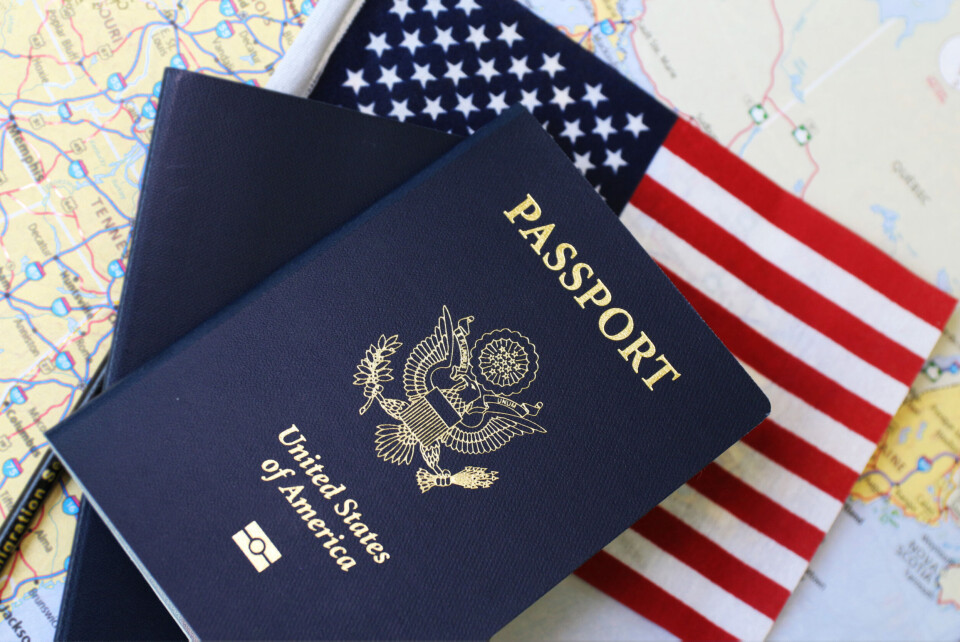-
Letters: France needs a new strategy to stop spam calls
Connexion reader says the new legislation will not work just as previous rules failed
-
Letters: VAT threshold reduction would hurt small businesses in France
Connexion reader notes that the additional tax burden would bring more bureaucracy with it
-
Comment: How France should respond to ‘bully’ Trump's tariffs
Columnist Simon Heffer looks at the effect the brewing trade war may have on France
Renouncing US citizenship: ‘Procedure is cumbersome and unlawful’
International lawyer Ronald Sokol looks at this fundamental human right and how US rules place obstacles in its way

Americans are renouncing citizenship in record numbers.
The Paris Embassy has a 12 to 18-month waiting period for the required interview before the government will recognize that a citizen ceases to be American. The Consulate General in Marseille has a backlog of expatriation cases.
Americans are lining up to make a sworn statement before a consular officer and pay $2,350 to give up their nationality.
To this lawyer, the entire procedure is inconsistent with a fundamental human right – the right to relinquish one nationality.
In addition to travelling to a US Consulate for a 15-minute interview with a consular officer, current rules include filling out four different government forms, a renunciation questionnaire, a renunciation acknowledgment, a statement of understanding concerning the consequences of renunciation, and an oath of renunciation.
The procedure is cumbersome, unnecessary, and unlawful. A written statement submitted to the consulate stating that one formally relinquishes one’s citizenship and providing proof that one will not be rendered stateless should be legally sufficient.
When the US Constitution was adopted in 1789, citizenship was not defined. After the Civil War, the nation adopted the Fourteenth Amendment, which provides that “all persons born or naturalised in the United States … are citizens of the United States and the State wherein they reside.”
That same year 1868 Congress adopted a law stating that “the right of expatriation [is] an inherent right of all people.”
The citizenship pendulum swung the other way early in the twentieth century. Congress began to impose ways in which citizenship could be involuntarily lost – marrying a foreign national, serving in a foreign army, voting in a foreign election, staying outside the US to avoid military service – are a few examples.
A half century later, the pendulum swung back. The Supreme Court ruled that an American could not be deprived of citizenship unless there was a clear intent to do so. “Citizenship,” the Court wrote, “is man’s basic right for it is nothing less than the right to have rights.”
Like all legal concepts, citizenship is a fiction, a legal technique for assigning individuals to a specific nation.
A nation-state is not simply a land mass; it is a membership organisation existing within a defined territory. If citizenship is acquired by birth in the territory or by parentage, membership is involuntary. Membership confers rights and duties. While it cannot be sold, it is a kind of intangible property with monetary value.
While courts and legal scholars have given much attention to how citizenship is acquired and how it can be involuntarily lost, almost no attention has been given to the legality of imposing restrictions on a citizen who wishes to abandon his or her nationality.
The “inherent right” of a person to expatriate, recognized by Congress in 1868, is closely connected to the right to leave one’s country listed in the Universal Declaration of Human Rights.
“Everyone has the right to leave any country, including his own…..”, states the International Covenant on Civil and Political Rights, and in Protocol 4 to the European Convention on Human Rights.
The American case is peculiar because the United States imposes administrative burdens, including taxes, on US citizens even if they have permanently left the country and even if they are so-called “accidental citizens” who acquired citizenship through a parent but never lived in or even visited the United States.
In certain cases, the United States continues to tax an American even after he or she has relinquished citizenship.
Whether a foreign state, such as France, would enforce an attempt by the United States to tax a French citizen who also had US nationality but had relinquished it, is an open question.
It is also an open question of whether a simple written statement sent to a US Consulate renouncing citizenship, showing proof of another nationality, and turning over the person’s American passport, would be recognized by France as a valid renunciation.
Clearly under current American practice it is not sufficient. Yet the current practice violates fundamental principles. It imposes a financial cost on exercising a fundamental right, depriving those who cannot afford the hefty fee of said right.
While the government has a legitimate interest in knowing if a citizen has expatriated, the cost it currently imposes, the excessive paperwork, and the possible burden of travelling to a US Consulate which may be hundreds of miles away, are manifestly excessive and unlawful.
Ronald Sokol is a member of the bar in the United States, France, and England. He is the author of Federal Habeas Corpus, Justice After Darwin, and more recently the Virginia Law School online publication of A Transatlantic Conversation.
Read also
Transplant patient fighting for France to pay €1m US hospital bill
Musician Ben Harper plans to leave 'toxic' US to live in France
Explainer: How has Brexit changed UK passport checks at EU borders?
























